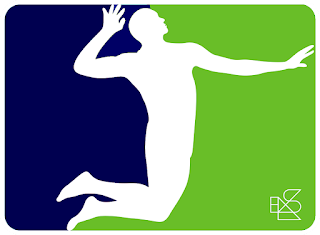What to do about drugs in sport
And now for a post full of lists......
The issue of performance enhancement in sport is complicated, but people are constantly blending together two separate issues, so lets separate them:
(Photo Credit)
The issue of performance enhancement in sport is complicated, but people are constantly blending together two separate issues, so lets separate them:
- What are the ethical and purely practical issues about whether drugs in sport should be policed at all?
- What do you do with people who, according to the rules as they are currently stated, cheat?
Lets tackle the second one first.
In sport there are rules, and there are clear consequences for breaking the rules. Unfortunately human nature means we can assume that:
- people will push the rules to the very edge of what is allowed
- then people will push past what is allowed
- if someone pushed past and wasn't reprimanded (caught AND appropriately punished), they will push further
Therefore, if there are rules, they need to be enforced in order to (this is the important part) protect the innocent. That is, protect those who choose to follow the rules of competition. Much is made of the difficulties encountered by those caught cheating, but rules are enforced to protect those who DON'T cheat. That's it. And its good.
Now, the second argument.
Because of the difficulty and complications of trying to enforce laws, as well as some grey area at times, some suggest the answer is to just legalise everything and therefore avoid the problem. What's wrong with drugs that help you recover faster? Surely that's ok. That is just helping someone get back to training and competing. It's not hurting anyone. But, how would you know when someone is no longer injured? Many athletes are almost constantly injured in some sort of way. So then, should they be able to take those drugs all the time? Probably not.
If we go to extremes, and nothing is illegal then:
- what about poor parents giving children growth hormones to their children in the hope of getting out of poverty?
- what about hyper-competitive parents giving their children grown hormones from birth in the hope of, well, who knows?
- what about genetic engineering?
- what about bionic limbs?
- people will push the rules to the very edge of what is allowed
- then people will push past what is allowed
So now we recognise that it is not just a question of just 'making everything legal'. There HAVE to be lines. So where should they be? Great question. Nuanced question. Difficult question. A question WADA constantly has to deal with. Even professional sports are now drawing their own lines.
So lets keep these two issues separate and:
- protect athletes who don't break the rules from those who do
- accept that no matter what there will always need to be lines to define what is allowed/sensible/ethical
- sensibly discuss where those lines should be, avoiding self-interest where possible
(Photo Credit)



it's only going to become harder to make sensible rules with technologies that allow genetic manipulation like CRISPR
ReplyDeletehttps://www.ted.com/talks/jennifer_doudna_we_can_now_edit_our_dna_but_let_s_do_it_wisely?language=en
did the athlete get that body that's naturally suited to swimming from the genetic lottery that is your parents or though the precise tampering through things like CRISPR? it may be impossible to tell. then what?
Agreed Jason. That's why my opinion is to keep things tight now. If we broaden what is allowed we will never ever be able to pull back.
DeleteEnforcing doping has only been around for a short time compared to the various justice systems around. The western justice system is there to protect the innocent - in that they don't want an innocent person to be found guilty. This results in letting a lot of guilty people go innocent. SO how effective are the measures we take in "protecting the innocent" when it comes to drugs in sport??
ReplyDeleteIn the end its impossible to say how effective the measures are, Hugh. I'd suggest that while WADA is catching people then the measures are at least somewhat effective.
Delete